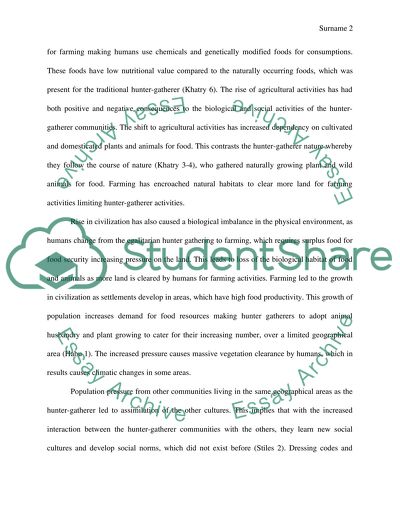Biological and/or social consequences of humans switching from a Essay. Retrieved from https://studentshare.org/anthropology/1476635-biological-and-or-social-consequences-of-humans
Biological and/Or Social Consequences of Humans Switching from a Essay. https://studentshare.org/anthropology/1476635-biological-and-or-social-consequences-of-humans.


